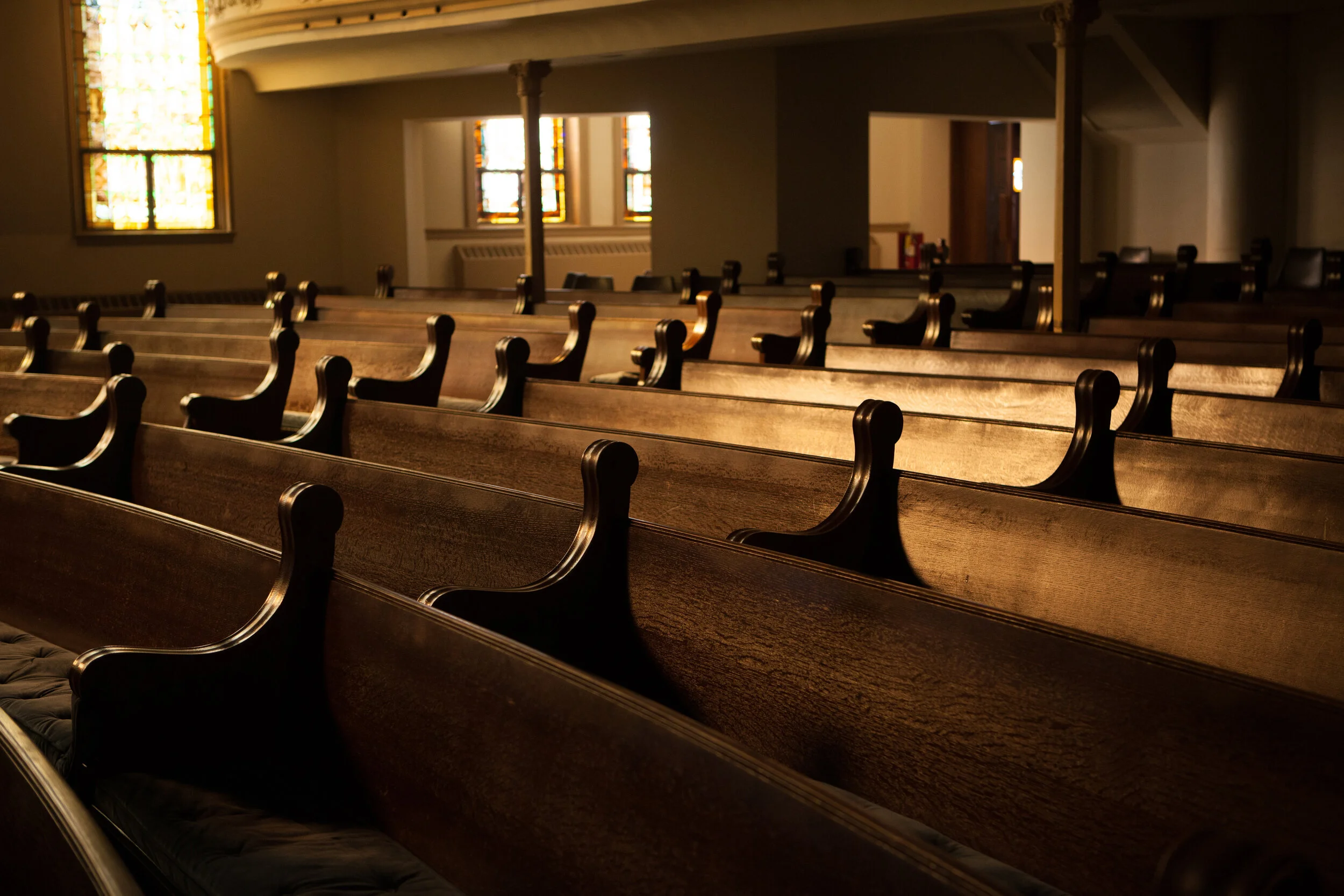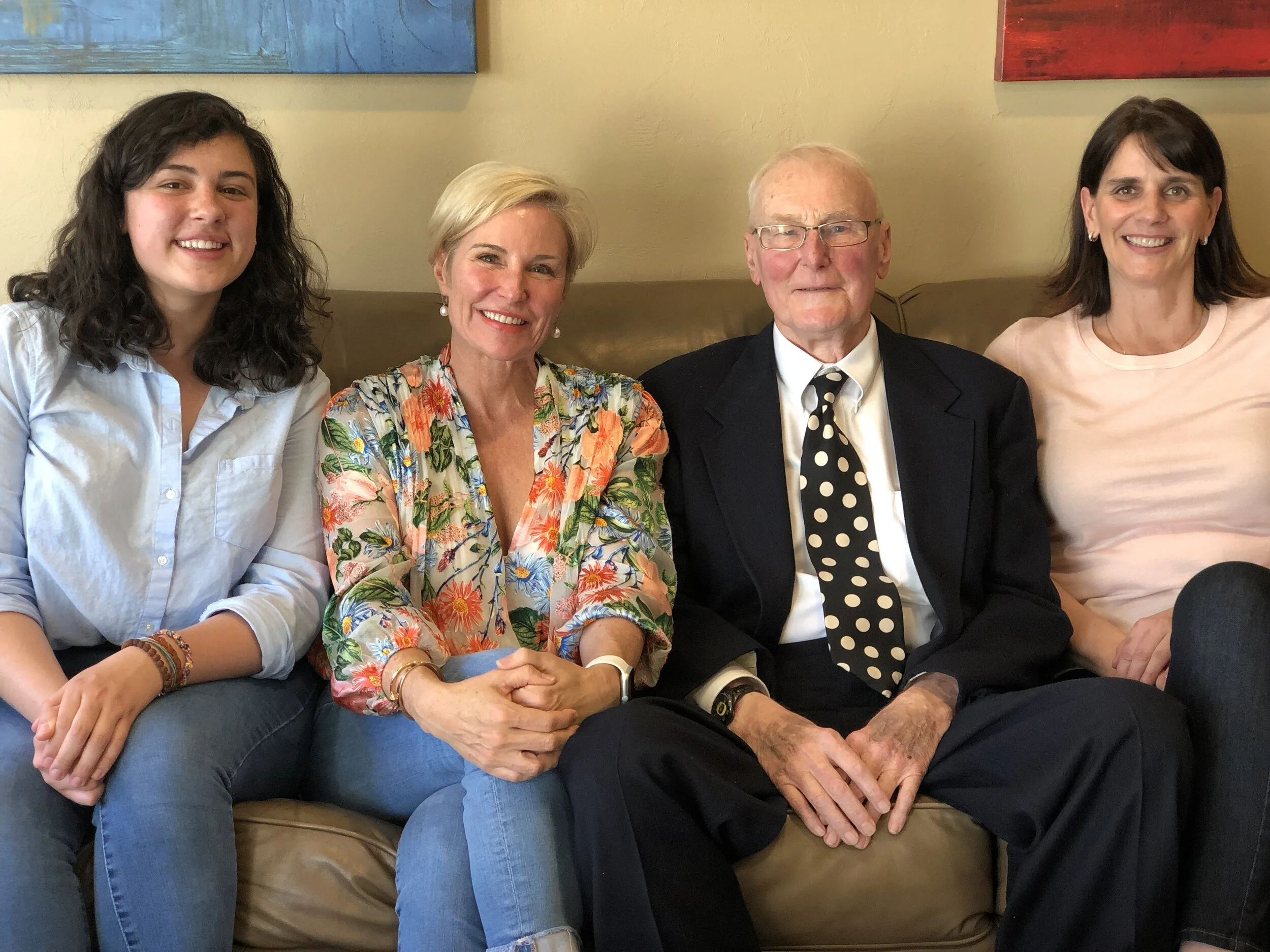Survey Results
Two months ago, we invited you to participate in a survey about what’s most important. 159 people took the time to respond. Thank you so much! Today we’d like to share a little bit about what we learned and how we’re responding to your feedback.
Of the services we already offer, you ranked investment management and endowment consultation as the most important. Many of you were surprised to learn that we offer so many different services! That tells us we can do a better job communicating about what’s available to you through the Foundation. Most of you said you hear from us at about the right frequency, and prefer receiving information via statements, personal emails, and our website. We’ll focus on those formats, and on increasing the quality of our communications rather than the quantity.
Stewardship in the COVID Era
When we began this journey with the COVID pandemic late last winter, almost everyone thought we’d be through this by now. We are blessed to have pastors and laity in our churches who have led effectively and learned more about technology and video production than they could ever have imagined. Now, into September, we still, with good reason, are a virtual church and stewardship season is just around the corner. The pastors we’ve talked to are mostly going with a modified version of programs they’ve used in recent years. Some are using components of Herb Miller’s Consecration Sunday (see resources below). Others are using letter writing campaigns and lay testimony shared via letter and perhaps video. Most of the published stewardship curriculum is designed for in-person gatherings and small groups and most of this curriculum can be modified to work online. We list a few…
Discussing Stewardship in a New Appointment
This month we are praying for pastors who are getting to know new congregations while social distancing. An appointment change can be stressful even without accounting for the physical and emotional strain of the pandemic. On top of everything else, if giving is down due to the lack of in-person worship, new pastors may be forced to address stewardship earlier and more seriously than they might have otherwise.
Cesie Delve-Scheuermann, author of the excellent blog, “Inspiring Generosity,” encourages pastors to “take the bull by the proverbial horns” and face the topic head-on.
Remembering the Wyckoffs
Burl Wyckoff and Aloha Maw met when they were teenagers at the United Methodist Church in Nyssa, Oregon. Burl was three years older, and four years ahead in school, on track to graduate at age 17. Most of the other young men from their small town went straight from high school to military service in World War II. But Burl’s dad wouldn’t let any of his boys join up until they turned 21, so Burl headed to college in Caldwell, Idaho, while Aloha started high school. They reconnected at Wallowa Lake Methodist Camp over the summer. The next fall, Aloha took a job as a nighttime telephone operator. One of its perks was the ability to make long distance phone calls to Caldwell in the middle of the night.
Sample Investment Report
A bear market’s no fun for anyone, but it can be especially stressful for those with the responsibility of reporting on their church’s investments. We’ve created a sample report to try and make it easier. Please adapt it for your context and use it however is helpful.
The church’s long term investments continue to be held in a diversified portfolio, which we believe is the most responsible choice. As you know, the market has taken a hit in response to COVID-19. The value of our investments has declined, but because of the fixed income instruments that our portfolio contains, it hasn't dropped as fast as the equity funds we’ve all seen on the news.
A Pledge That Carries On
Doug McKay’s life runs parallel to Wesley UMC. His parents were founding members. When he was a teen, the church met in a schoolhouse. As he started his own family, Wesley UMC grew with them, building its own sanctuary and filling it with children’s laughter.
Zoom for pastors and church leaders
Even when worship is cancelled, church leaders are still called to make critical decisions together. Videoconference tools make it possible to hold meetings from home. The Foundation uses software called Zoom to get our team together, conduct board meetings, and even teach workshops. We’re happy to share some of what we’ve learned to get you started. During the COVID-19 crisis, we’re also offering to work one-on-one with pastors and finance chairs to coach them on this technology.
You Asked: What to do with an undesignated bequest?
Dear Foundation,
Our church just received an undesignated bequest. We’re thrilled, but we don’t have a policy in place about what to do with it! It will probably take us a while to decide, and we don’t want to miss out on interest that we could have earned during our discernment process. But if we put it in our endowment, does that prevent us from spending the principal in the future once a decision has been reached?
Congratulations on receiving a bequest-- your ministry obviously had a big influence in the donor’s life. Undesignated funds can be a huge blessing. As you described, they also force your church leadership to do some discernment together. You’re wise to want to understand all your options at the beginning of this process.
You Asked: Alternatives to CDs
Dear Foundation,
Our church has several CDs maturing this year. We usually use a small portion of these funds to balance the budget, but we plan to reinvest most of the money. We’d rather invest it with the Foundation than continue to buy CDs. What are our options?
Lots of churches use CDs for low-risk investments, but this strategy requires someone to reinvest the money on an ongoing basis as the CDs mature. We often hear from congregations who are looking for a simpler way to manage these funds after a beloved trustee or finance team member retires from this volunteer role. So you’re definitely not alone! The choice you make will depend on your goals for this money. I’ll outline three possible approaches, and then your finance team can do some discernment together.
Year-End Giving Resources
December is one of the busiest seasons for church leaders, so it’s easy to put fundraising on the back burner. But the truth is, if you’re not making a year-end-appeal, you’re leaving money on the table. An appeal doesn’t have to be complicated. For example, you could:
send out a letter from the pastor in the mail this week (template below)
print a brochure to use as a bulletin insert on December 15th (the linked file is print-ready, and includes crop marks for your local printshop to use) and make a brief announcement about it during worship
send a brief email on December 31st (template below)
If you haven’t made a plan already, you can adjust these templates, calendar them, and delegate them today. Then, let your year-end appeal run on autopilot while you focus on the coming of the Christ child.
Beyond Bequests: 3 Planned Gifts that Help Now
Most planned gifts don’t benefit the church until after a beloved member passes away. But as we enter a time of year associated with generosity and giving thanks, you should be aware that there are other types of planned gifts that can benefit your church immediately. These gifts can also have great tax advantages for the donor. If one of your members wants to make a planned gift whose impact they can see during their lifetime, here are three options to consider.
Investors for Opioid Accountability
There are three ways we use our money for good through Wespath. We invest in companies and projects that make the world a better place. We avoid certain sectors of the market for ethical reasons. And for companies on the middle ground-- neither superstars nor villains-- we engage with them and encourage them to do the right thing, especially when a specific ethical concern arises, such as the opioid crisis.
According to the CDC, more than 70,000 people died from drug overdoses in 2017, and that number is on the rise. Ongoing lawsuits implicate drug companies and pharmacies in these deaths. Wespath has decided to engage with companies throughout the supply chain to reduce the harm done by opioids.
6 Questions to Ask about Your Church's Investments
Ah, September: back to school. Home canning season. Pumpkin spice lattes. And for most endowment committee members or trustees, it’s also time to resume regular meetings, take inventory of your church’s investments, and make a report to your charge conference. Here are six questions to guide your conversation as you do this important stewardship work.
1. ARE WE AWARE OF ALL ASSETS FOR WHICH WE ARE RESPONSIBLE?
Take inventory. Have new funds been received, existing investments matured, or additional assets been transferred to or from our committee/board since we last met? If so, make sure these are documented and included in, or excluded from, your discussions.
More Stewardship Resources
With fall rapidly approaching, we sit on the cusp of another busy ministry season. Last week we published a review of seven popular stewardship campaigns. They fell into two broad categories: the small group study campaigns, and the commitment Sunday campaigns. Choosing the right campaign for your context is important. But the financial culture that your congregation develops year-round is even more important. As you begin your work towards a successful campaign, here are a few learnings that I’ve gleaned over the years as pastor and superintendent that have shown to be relevant to stewardship in our local churches:
Jump into Stewardship Season
It’s August! With people returning from vacation, Sunday schools starting up, choirs beginning rehearsal, and committee groups reconvening, our churches will soon be buzzing with activity. Amidst this there is, of course, the 2019 annual giving campaign that must be planned.
Before diving into the seven specific programs outlined below, let me share a word about annual stewardship campaigns. Most of them include 4 weeks of material for a program, but please consider your context. How long will it take to get ready? What will need to be prepared ahead of time? What about…
Small groups?
Guest speaker?
Pledge letter or pledge cards?
Community meal?
Promotion via website, social media, newsletter, emails, and worship bulletins?
All these require some planning ahead of time, preferably with a team and a chairperson. If you don’t have one, begin recruiting a chairperson right now. Meet as early as possible with your team to get the planning going.
We Invest in #TransitionReady Companies
At the most basic level, money is a tool for expressing the value of things. We also believe it’s a tool for expressing the values of our faith. That’s why we partner with Wespath to invest money for churches and agencies. Wespath engages the global financial market from a Wesleyan perspective.
Wespath’s most recent sustainable investment report states: “We view the world’s broad acceptance of climate change as the megatrend driving one of the most important shifts in the financial markets—the transition to the low-carbon economy…
Multi-Generation Generosity
Harland and Rose kept the money they earned in a household account. As a banker, Rose managed the family finances with precision. Harland, a WWII Navy veteran and carpenter, thrived on the art of the deal. He had a keen eye for fixer-uppers. Any money he earned moonlighting he invested in houses, property, and cars. They made a good pair: the conservative banker and the hardworking risk taker.
Their son Randy remembers sitting between the two of them in a church pew as a teenager in the mid-1960s…



















